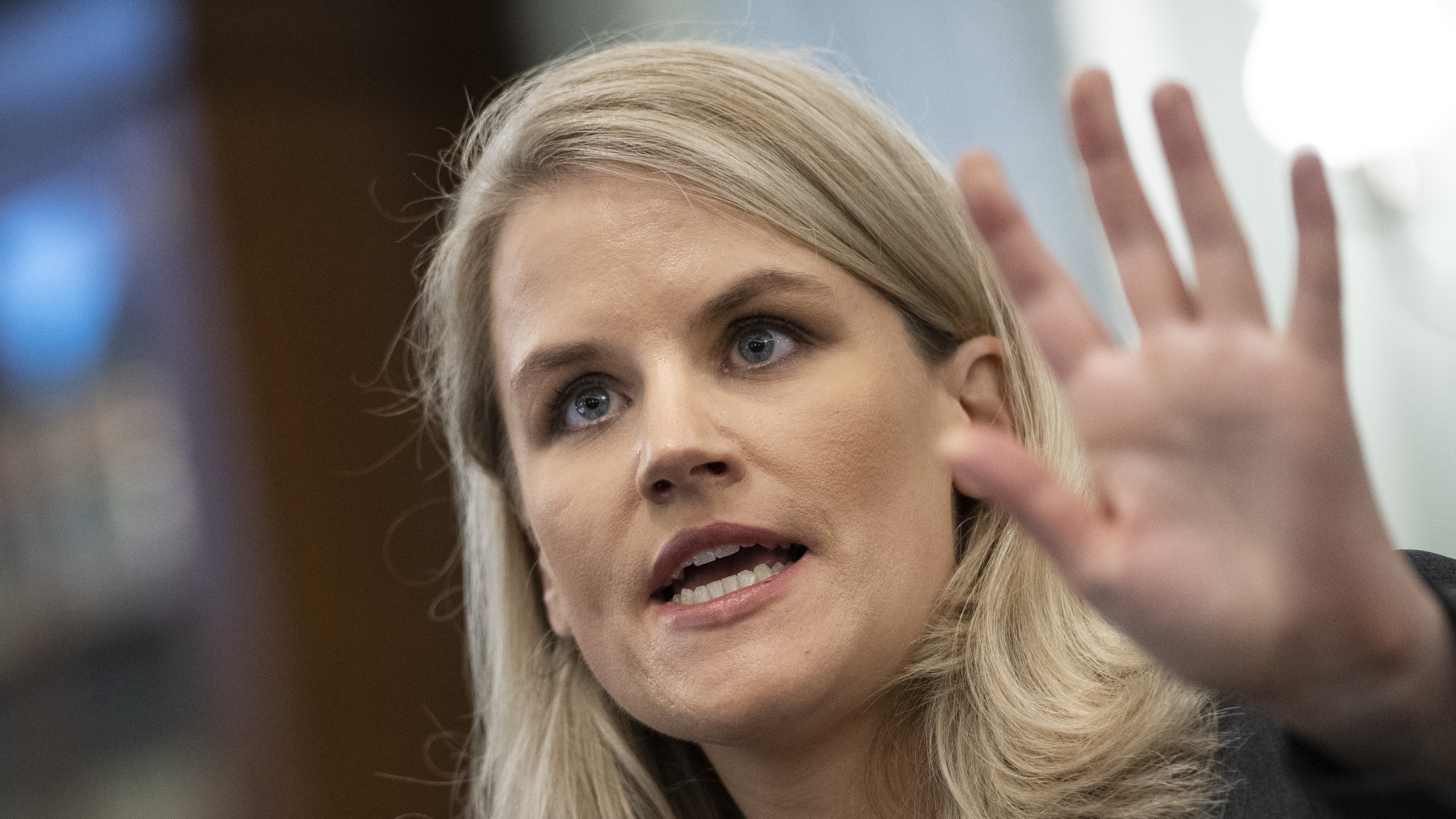‘Accountable to no one’: the whistle-blower allegations against Facebook explained
Former product manager Frances Haugen claims social media giant is ‘putting profit over safety’

A free daily email with the biggest news stories of the day – and the best features from TheWeek.com
You are now subscribed
Your newsletter sign-up was successful
A Facebook whistle-blower has accused the social media giant of repeatedly failing to do “what was good for the public” in order to make more money.
Frances Haugen, a former Facebook product manager, revealed in a televised interview on Sunday that she was the whistle-blower who leaked internal documents that formed the basis of a series of damning reports in the Wall Street Journal (WSJ) last month.
Her claims about Mark Zuckerberg’s company have “heaped further political pressure on the tech giant”, said The Guardian. Haugen told CBS news programme 60 Minutes that “over and over again there were conflicts of interest between what was good for the public and what was good for Facebook”.
The Week
Escape your echo chamber. Get the facts behind the news, plus analysis from multiple perspectives.

Sign up for The Week's Free Newsletters
From our morning news briefing to a weekly Good News Newsletter, get the best of The Week delivered directly to your inbox.
From our morning news briefing to a weekly Good News Newsletter, get the best of The Week delivered directly to your inbox.
And “Facebook over and over again has shown it chooses profit over safety,” continued Haugen, who made further allegations during a testimony to the US Congress yesterday. “It is subsidising, it is paying for its profits with our safety.”
The whistle-blower
Haugen was a product manager on Facebook’s “civic integrity team” for almost two years before quitting in May. She had previously spent more than a decade working in the tech industry, including stints at Pinterest and Google, but told 60 Minutes that Facebook’s failure to restrict harmful content on the platform was “substantially worse” than anything she had seen before.
In the “Facebook Files” published in WSJ, Haugen alleged that Facebook was aware “in acute detail, that its platforms are riddled with flaws that cause harm, often in ways only the company fully understands”.
A free daily email with the biggest news stories of the day – and the best features from TheWeek.com
“Time and again, the documents show, Facebook’s researchers have identified the platform’s ill effects,” said the paper, but “time and again, despite congressional hearings, its own pledges and numerous media exposes, the company didn’t fix them”.
Internal research had repeatedly found that Facebook-owned “Instagram is harmful for a sizable percentage” of young people, “most notably teenage girls”.
Such ill effects were allegedly known “up to the chief executive himself”, yet the company failed to act and has built “a system that has exempted high-profile users from some or all of its rules”, said the WSJ.
Facebook’s vice president of policy and public affairs, former Liberal Democrat leader Nick Clegg, dismissed the reports as a “deliberate mischaracterisation of what we are trying to do” that “conferred egregiously fake motives to Facebook's leadership and employees”.
The latest allegations
Haugen said during her interview on Sunday that “as long as Facebook is operating in the dark, it is accountable to no one”, adding: “It will continue to make choices that go against the common good.”
Urging US lawmakers to step in with stricter oversight of the company, Haugen told the Senate Commerce Subcommittee yesterday that “Facebook’s products harm children, stoke division and weaken our democracy”.
“The company’s leadership knows how to make Facebook and Instagram safer, but won’t make the necessary changes because they have put their astronomical profits before people,” she said.
Haugen called on lawmakers to ensure that Facebook shares internal information and research with “appropriate” oversight bodies such as Congress. She also suggested that the social media giant should minimise “the influence of algorithms on Facebook’s News Feed by allowing it to be ranked chronologically”, The Guardian reported.
In further damning allegations, Haugen has filed at least eight complaints with the US Securities and Exchange Commission that include claims that Facebook misled “investors about the size of its audience and concealed a years-long decline in younger users in the US”, the Financial Times said.
The financial watchdog was told that “during Covid, every cohort’s use of Facebook increased, except for those 23 and under, which continued to decline”. Facebook “has, for years past and ongoing, violated US securities laws by making material misrepresentations and omissions in statements to investors and prospective investors”, the complaint continued.
Facebook and Instagram are also alleged to have been aware that the platforms were being used to “promote human trafficking and domestic servitude”, according to excerpts seen by CBS.
In addition, the filings accuse Facebook of being complicit in the Capitol riot, by failing to “deploy internally-recommended or lasting counter-measures” to combat misinformation and violent extremism related to the 2020 election.
Haugen told 60 Minutes that following Joe Biden’s victory, Facebook prematurely reinstated old algorithms “to prioritise growth over safety. And that really feels like a betrayal of democracy to me.”
In a statement to CBS, Facebook said it had “banned hundreds of militarised social movements, took down tens of thousands of QAnon pages, groups and accounts from our apps, and removed the original #StopTheSteal Group”.
“Ultimately, the responsibility resides with those who broke the law, and the leaders who incited them,” the company added. “Facebook has taken extraordinary steps to address harmful content and we'll continue to do our part.”